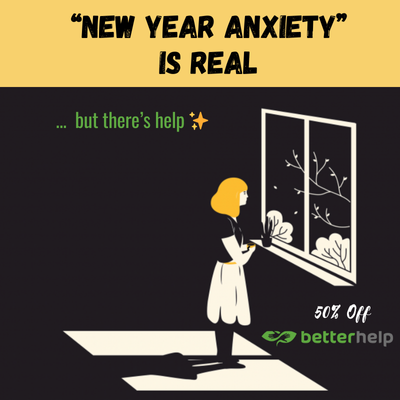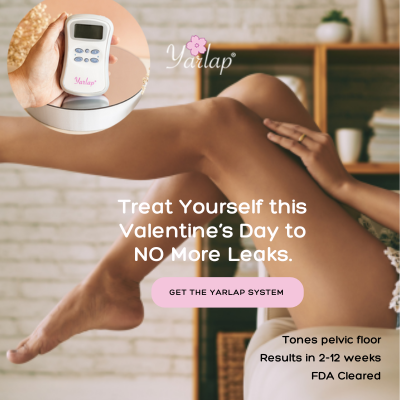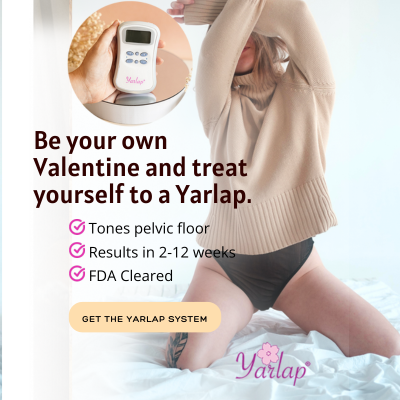In the immortal words of Salt-N-Pepa, “Let’s talk about sex baby. Let’s talk about an-xi-ety.”
Okay, maybe, that’s not how the song goes, but let’s talk about it anyway.
We have been saturated with information on anxiety; we know it affects our daily life and can even shut us down mentally and physically at any given time. There are books, videos, and podcasts that all talk about the who, what, when, and how of anxiety.
And, hey, I literally built my coaching practice around anxiety and helping those who need it. But the one thing we rarely come across is the impact anxiety plays in one area of our life: our sex life.
According to the Anxiety and Depression Association of America, roughly 40 million American adults suffer from some form of anxiety disorder. That doesn’t even include the 25 percent of American children ages 13 to 18 years old that also suffer from anxiety.
This year alone, with the global pandemic, economic struggles, and the continual fight for human equality, it wouldn’t be any surprise if those numbers skyrocketed.
The truth is anxiety can have a serious impact on our sex life and disrupt our relationship with our partner.
If you suffer from anxiety, even an intimate moment with the one you love or mildly desire can be ruined.
Although statically, there are many women diagnosed with anxiety, that doesn’t mean that it doesn’t affect their male counterparts. Most men go undiagnosed because they will identify with being “stressed” over “having anxiety,” but if you ask them what their symptoms are, it is often the same.
Anxiety symptoms like:
>> Irritability
>> Procrastination
>> Headaches
>> Difficulty focusing
>> Muscle tension
>> Insomnia
Most men will brush it off or not discuss their symptoms with their healthcare provider, until it begins to disrupt their daily life. The anxiety can be missed or masked under other conditions.
At that point, anxiety can show up in the form of:
>> Cardiac symptoms (high blood pressure or palpitations)
>> Gastric symptoms (ulcers, change in bowel habits)
>> Neurological symptoms (difficulty remembering or focusing)
Many men that experience stress or anxiety can also have urological conditions that impact their sex life. These include:
>> Erectile function disorder (ED)
>> Premature ejaculation
>> Loss of libido
>> Decreased stamina
For women, our bodies are also affected in similar, and not so similar, ways.
While most of our health symptoms will be the same, sexually, we can experience:
>> Vaginal dryness
>> Vaginismus (muscle spasm in the pelvic floor making intercourse painful or impossible)
>> Irregular periods
>> Loss of libido
>> Decreased stamina
Both men and women can also struggle in achieving an orgasm.
Emotionally and mentally, we are not much different:
If one partner suffers from anxiety, the other often feels neglected, undesirable, physically and/or emotionally unsatisfied, frustrated, sadness, lack self-confidence, and disconnected.
While the person with anxiety can be dealing with post-traumatic triggers, lack of self-confidence, mental distractions (racing thoughts), depression, feeling unable to satisfy their partner, and not good enough.
Even the relationship we have with our own bodies is affected. We will look at ourselves in the mirror and think we failed because we could not have an intimate moment and connect with our partner. The self-judgment is real, and it’s so hard. Living in a body that we feel is working against us is difficult to live with. Not feeling attractive enough. Too much of this, not enough of that.
Women with anxiety will often struggle to ask for what they sexually want from their partners—the fear of judgment or shaming will take over.
“What will he think of me if I tell him ___(insert your favorite freaky fantasy here)?”
Women can go years not expressing how or where they want to be touched or what they desire. This will cause unsatisfying interactions, because she will always feel like there is a part of her that she cannot freely reveal and could be judged.
Then, there’s also not speaking up on what we don’t want.
Years ago, I had a partner who would do the tongue-in-the-ear thing, which, honestly, annoyed me. But he seemed to enjoy it, so I didn’t speak up; I didn’t want to hurt his feelings and make him feel bad. I took that on and put it on myself. Once I finally brought it to his attention, like, “Hey, we can skip that part, like, always,” he was surprised because he thought I enjoyed it, and that was why he kept doing it. Ugh, major facepalm.
Now that I am older, wiser, more secure in my body, and definitely in my voice, I can gently and lovingly express to my partner what I want and don’t want and not feel anxious that I am going to hurt his feelings or feel that I will be judged.
That all started with learning to love me first. I had to put in the work. I went through years of self-help books, counseling, and barrels of tears.
I had to learn how to communicate with myself. Listen to my inner voice. Embrace (yes, embrace!) my anxiety, and learn that it was okay to matter. Hell, it’s necessary that I feel like I matter and love myself.
I learned that I set the bar for how others treat me. A dear friend of mine said to me years ago, “What you allow will continue.” And, although she was talking about a toxic relationship that I was in at the time, those words stayed with me. I now apply that to so many areas of my life, including the narratives I tell myself, and how I feel each day.
My voice is free. When safety, trust, and freedom are part of the relationship’s foundation, you can feel secure being vulnerable; that vulnerability allows us to release anxiety and takes intimacy and trust to another level.
Medications may cause side effects:
People that experience severe anxiety can be prescribed antianxiety medication. While serving their purpose on one end, these prescription medications can have a serious impact on our body and our libido. The medication can numb the physical and mental parts of the anxiety. However, the emotions from a lack of self-worth and self-confidence, neglect, and frustration are likely still relevant—it can drop your desire for sex to a chilling arctic subzero, and this can leave you and your partner feeling disconnected.
Contact your prescribing physician and ask if the medication you have been prescribed may have these side effects. In any case, finding ways for you and your partner to connect will be important.
Reconnecting with your partner:
If you or your partner have anxiety that interferes with your sex life, try implementing some nonsexual experiences into your relationship. The intent is to bond in a relaxed, nonsexual space, to develop a stronger soulful connection and a safe, intimate space building trust and desire.
If your partner has experienced physical trauma, ask permission before trying some of the physical activities listed below. This shows compassion, understanding, and empathy.
Here are some ways to help you and your partner create or strengthen your connection—and even release the feel-good, euphoric hormone dopamine:
The key for each of these is to be present with your partner, so you both feel in tune with one another.
The attitude of gratitude:
Express one or two things your partner did that day that you are grateful for. This will make each of you feel valued and seen.
Hugs:
Hugging just feels good. Hug your partner for two minutes and allow yourself to be present in that moment. How does their skin feel against yours? Savor their essence. Feel their heartbeat. Notice how their body leans in and relaxes the longer you hug.
Cuddling and more:
Cuddling or spooning can help you and your partner feel safe with each other. Also, hold hands, play with their hair, massage each other’s hands while you are in the embrace.
Reach out:
Sending each other small “I’m thinking about you” or “I love you” texts while you are apart can make your partner feel special. Or, take a minute out of your day and call just to hear their voice.
Massage:
Turn off all distractions and light some candles and give each other a 15-minute massage.
Talk it out:
Spend some time communicating about things you like about one another and what they do that makes you feel loved and safe. For example: “It makes me feel good when you____,” “I feel most loved when you____.”
Date night:
Cook together or order in, have a picnic on the living room floor, create a fort out of some blankets and chairs (yes, really!), read to one another. Relax, have fun, and laugh.
Eye contact:
Tantric eye gazing or soul gazing is a sacred Buddhist and Hindu tradition used to heighten intimacy and build deeper trust. Try this for four minutes. Incorporate this when you are hugging or dancing.
Play time:
No shame in the playing game. Masturbation and foreplay are healthy parts of self-care and connecting with our partner. Masturbation not only releases “happy hormones,” but it also helps you learn about your body, so you can discover what you like, and what works for you, and communicate that to your partner for a more satisfying and intense experience.
An article in Psychology Today suggests masturbation can help body image, increase the ability to have orgasms, reducing stress, and improve relationships and sexual satisfaction.
Foreplay helps strengthen intimacy and helps relax the mind and body. It helps build that desire and anticipation. Taking warm baths or hot soapy showers together, oral sex, sensory play, and massages can help you and your partner feel connected and keep that bond strong. Communicate with your partner about what you like and why you like it.
There are many ways sex can help with anxiety:
Sex can help you practice mindfulness. If you find yourself getting distracted during sex, redirect your attention to the physical sensation you are experiencing.
Sex releases happy hormones, like dopamine, endorphins, and oxytocin that are released during arousal and intimacy. Dopamine helps us feel pleasure and desire. Endorphins are natural stress relievers and mood-boosting hormones. Oxytocin is released during orgasm and helps us feel positive emotions and relaxation. These all play a part in increasing trust, intimacy, and satisfaction.
Sex also proves good for your health by:
>> Boosting the immune system. Stress and anxiety can actually weaken the immune system.
>> Stimulating estrogen and testosterone. Regular activity releases estrogen and testosterone, promoting better skin.
>> Keeping the heart healthy can play a role in lowering blood pressure and lowers the risk of cardiovascular diseases.
>> Counting as exercise—sort of. You may not burn as many calories (about 85 calories for 30 minutes), but it is definitely more fun than the gym.
>> Promotes better sleep. The hormone prolactin is released during orgasm, which helps you feel relaxed and sleepy.
To quote Robin Sharma, “The mind is a wonderful servant, but a terrible master.”
~










Read 2 comments and reply